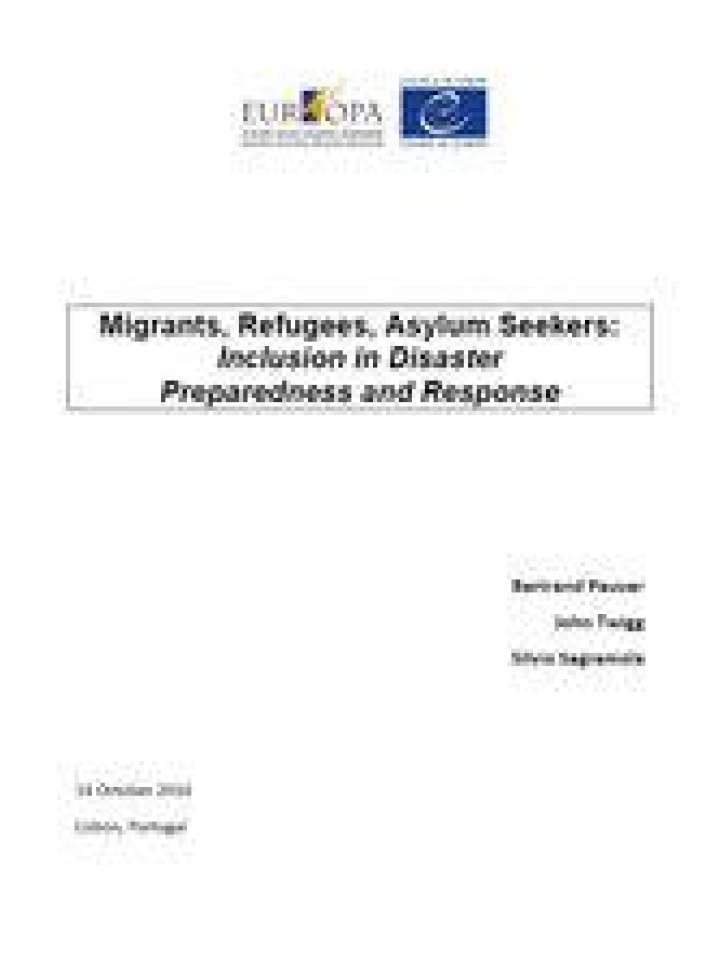Migrants, refugees, asylum seekers: Inclusion in disaster preparedness and response
This publication stresses the importance of involving migrants, asylum seekers and refugees, and the organisations that represent them, in counter-disaster programming in Europe. The recommendations seek to improve communication, foster mutual understanding, build trust as well as recognise and utilise migrants' skills and coping capacities.
The authors bring the following key requirements to the attention of European policy makers:
- Migrants, asylum seekers and refugees are entitled to the same support as the general population, on the principle of equal rights for all, and consistent with international human rights law.
- There should be national policies, legal frameworks, plans and programmes to assist and protect migrants, asylum seekers and refugees in emergencies, with assigned responsibilities for implementation at national, regional and local levels, and coordination with other support agencies.
- Planning for protection and assistance of migrants, refugees and asylum seekers in emergencies should involve political authorities, public administrators, civil protection authorities, the private sector, civil society organisations and representative migrant groups and organisations.
- Planning should take into account migrant populations’ locations, living conditions, vulnerabilities and needs, together with the obstacles they may face in accessing assistance.
- Emergency plans should recognise the heterogeneity of migrants, asylum seekers and refugees as individuals with specific needs, rather than as groups or categories.
- Particular attention should be given to situations in urban areas, where the majority of migrants, asylum seekers and refugees reside, and to invisible and highly mobile populations.
- Civil protection staff and volunteers should be trained in cultural diversity, intercultural communication and awareness, and should seek to establish relationships of trust with migrants, asylum seekers and refugees.
- Migrants, asylum seekers and refugees should be recruited and trained as staff, volunteers and advisors, including making full use of the linguistic and technological skills of young people.
- Migrants’ skills and capacities should be recognised and utilised, including their social networks and experiences in dealing with crises and overcoming hardship.
- Communication and public education programmes about risks, emergency procedures and services should be designed specifically for non-native speakers, through community outreach, written and oral translation, graphics and other innovative communication tools.
- Negative stereotypes about migrants, asylum seekers and refugees should be challenged through advocacy, and positive communication should be promoted to promote improved inter-community relationships that will be valuable in crisis planning and response.
- Procedures should be put in place to ensure that migrants, asylum seekers and refugees are protected from exploitation, discrimination, abuse and violence throughout the disaster cycle (prevention, preparedness, response and recovery).
Explore further
